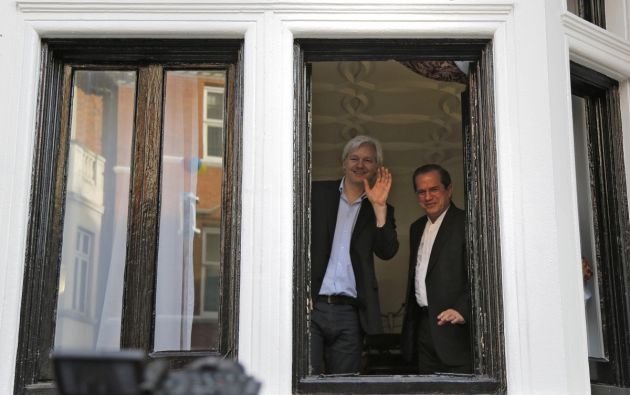Wikileaks founder Julian Assange derides Catholic confessional system

Wikileaks founder Julian Assange stirred a new controversy this week when he denounced the Catholic Church's confessional system as a means to spy on its congregants for the sake of power.
The 43-year-old Australian national is holed up in the Ecuador Embassy in London under political asylum.
He spoke from there for three minute on January 2 in a current affair program on Britain's national broadcaster praising the Protestant Reformation for helping to liberate people.
In the broadcast, which drew both plaudits and denigration, he quoted Greek philosopher Aristotle and used biblical references including the Old Testament's Book of Proverbs.
Assange's message was broadcast in addition to the regular Thought for the Day on the British Broadcasting Corporation's Today program which was given by the former Archbishop of Canterbury, Rowan Williams.
The embassy fugitive said Jesus was a "great activist" and he warned governments using secret intelligence agencies that they should heed the advice from "one of the world's great activists" St. Matthew.
Assange was a founder of Wikileaks website which showcased leaked government documents in 2006. By 2010, he was known internationally for posting hundreds of thousands of classified United States government documents.
His supporters hail him as an activist exposing the true nature of government running out of control, whilst his critics accuse him of placing innocent people in danger with the documents he has revealed.
GUEST EDITOR
Musician PJ Harvey invited Assange onto the BBC 4 radio program slot as the guest editor for the day. Her introductions included songs and poetry from a former prisoner at Guantanamo Bay.
The singer said on her website, "When I was invited to be guest editor on Today, I saw it as an opportunity to try and do something unusual with the format and content of the program.
"I began by thinking of people I consider to be highly articulate, stimulating and extremely interesting to listen to - people who challenge us and move us to examine our deepest beliefs and feelings. I wanted to fill my program with their voices."
She introduced her controversial guest by saying, "For many, Julian Assange is a person of great courage who has opened a door to a freedom that ought to be of the essence of democracy."
Assange asserted on the current affairs program, "The Protestant Reformation was not just a religious movement but a political struggle, the fight to liberate hoarded knowledge through translation and dissemination."
He said, "Through the Confessional system, the Catholic Church spied on lives of its congregants, while Latin mass excluded most people who couldn't speak Latin from any understanding of the very system of thought that bound them."
There is much evidence, said Assange, that when the powerful wanted to keep their power, they seek to know as much as about ordinary people as possible and try to ensure they know as little about the people at the top as possible.
"I have seen this in both in religious writings, which promised emancipation from political repression and in the revolutionary works promising liberation from the repressive dogmas of the Church and the State," he said.
"The powerful throughout history have understood this, the invention of the printing press was opposed by the old powers of Europe because it spelt the end of their control of knowledge and therefore the end of their tenure as powerbrokers."
He praised NSA whistleblower Edward Snowden for showing up governments' godlike knowledge of ordinary people.
BOOK OF MATTHEW
Assange finished his speech by saying, "We must be unapologetic about that most basic of humanities, the desire to know. The powerful would do well to observe one of history's great activists as recorded in the Book of Matthew. It begins: 'There is nothing concealed that will not be disclosed'."
There was crticism of the choice of program's choice of Assange and another Australian- born commentator John Pilger.
The Guardian newspaper quoted Ian Austin, a Labour Party lawmaker tweeting, "In 30 years of listening, I already thought today's @BBCr4today was worst ever. I cldn't imagine it cld get worse. Then they put Assange on."
The BBC said it had received 37 complaints about the program.
The broadcaster said in a statement, "The well-established role of the guest editors is to bring their own unique ideas and expertise to the Today programme, working closely with the regular programme team to ensure the material meets the BBC's editorial guidelines.
"Our guest editors come from all walks of life and represent a range of views."
Among other guest editors have been traveller, broadcaster and Monty Python star Sir Michael Palin, and Tim Berners-Lee, inventor of the World Wide Web.
In 2012, Assange sought diplomatic asylum at the Ecuador Embassy in London after the British government sought to extradite him to Sweden where he faces sexual assault allegations.
Assange is said to fear being sent from Sweden to the United States where he could face espionage charges.